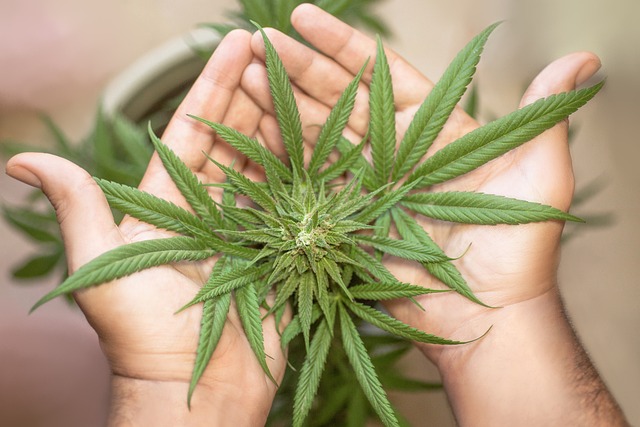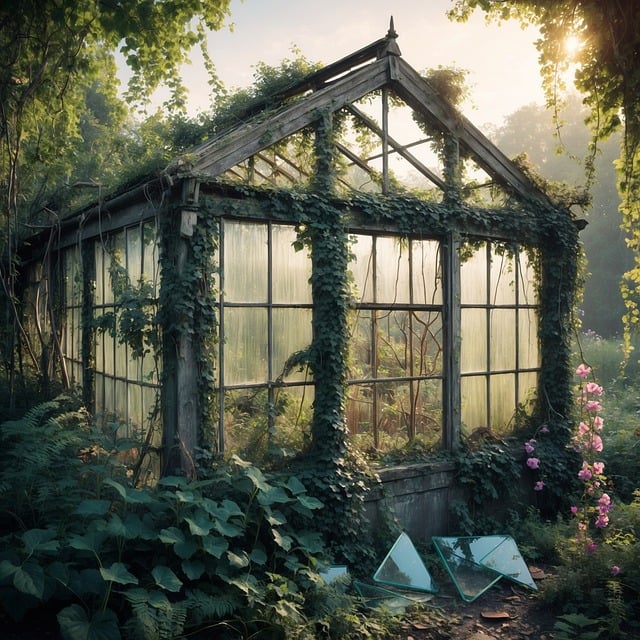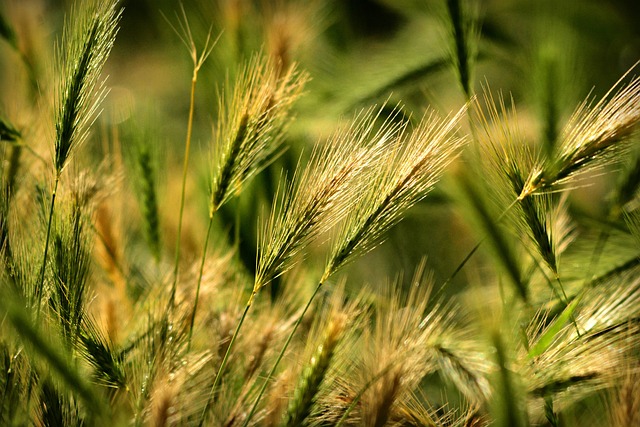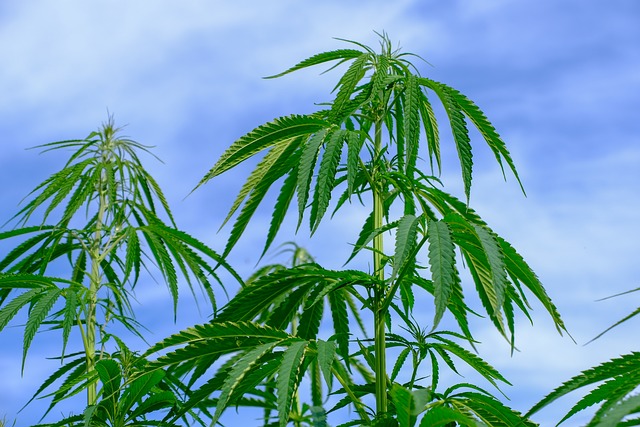THCA (Tetrahydrocannabinolic Acid), a non-psychoactive cannabinoid present in the Cannabis sativa plant, is being studied for its potential to assist with sleep disorders. Unlike THC, its psychoactive decarboxylated form, THCA does not induce a high but is believed to interact with the endocannabinoid system to promote better sleep. The best thca strains for addressing sleep issues are those with high THCA content and minimal THC, offering a calming effect without impairment. These strains may enhance their sedative effects through the entourage effect, which involves additional cannabinoids and terpenes. For instance, ACDC is renowned for its balanced THCA to THC ratio, providing a gentle relaxing effect ideal for sleep disturbances, while Harlequin's balanced cannabinoid profile supports restful sleep without morning drowsiness. Elektra, Sour Space Candy, and Remedy are also top-rated strains for their high THCA content and therapeutic effects. It's crucial for users to consult with healthcare professionals before incorporating these strains into their sleep management routine, considering individual health factors. These THCA strains offer a natural alternative to traditional treatments for improving sleep quality as part of a holistic approach to treating sleep disorders.
Explore the transformative potential of THCA flower as a natural aid for those grappling with sleep disorders. This in-depth article delves into the benefits of THCA, the non-psychoactive precursor to THC, and its direct impact on restful slumber. We’ll guide you through the best THCA strains for sleep disorders, highlighting their unique properties from ACDC to Northern Lights. With expert insights on dosage and usage, we unravel the science behind THCA’s sleep-promoting effects and offer practical advice for integrating it into your evening routine. Discover the role of terpenes in optimizing sleep quality and learn how growing your own THCA flowers can be a rewarding experience. Additionally, navigate legal considerations, understand potential side effects, and explore how THCA diverges from other cannabinoids in addressing sleep issues. User testimonials provide real-world perspectives, while FAQs address common queries. Join us as we illuminate the path to better sleep with THCA flower, your natural ally against sleep disturbances.
- Unlocking the Potential of THCA Flower for Sleep Disorders
- Understanding THCA: The Precursor to THC
- Top THCA Strains for Improved Sleep Quality
- – ACDC: Harmonious Relaxation
Unlocking the Potential of THCA Flower for Sleep Disorders

THCA, or Tetrahydrocannabinolic Acid, is a non-psychoactive cannabinoid found in the Cannabis sativa plant that has garnered attention for its potential therapeutic benefits, particularly in addressing sleep disorders. As researchers continue to explore the efficacy of THCA, anecdotal evidence and early studies suggest that certain THCA-rich strains may hold promise for individuals experiencing difficulty sleeping. The best THCA strains for sleep disorders are typically high in THCA and low in psychoactive THC, ensuring a calming effect without the psychoactive side effects. These strains often contain other cannabinoids and terpenes that synergistically enhance their sedative properties.
For instance, ACD/2, also known as Sour Space Candy, is celebrated among users for its ability to induce deep relaxation and ease into a restful state. Another strain, Harlequin, is noted for its balanced THC and CBD profile, offering a clear-headed relaxation that can be beneficial for those who need to fall asleep without feeling groggy in the morning. The entourage effect, where the combined effects of cannabinoids and terpenes are greater than their individual effects, is thought to play a crucial role in THCA’s potential for sleep regulation. As such, users with sleep disturbances may find relief and improved sleep quality by incorporating THCA flower strains into their nighttime routine. It’s important to consult with healthcare professionals before introducing new supplements or treatments, including THCA, into one’s wellness regimen to ensure safety and efficacy tailored to individual health needs.
Understanding THCA: The Precursor to THC

Cannabis enthusiasts and researchers alike are increasingly fascinated by THCA, or tetrahydrocannabinolic acid, the raw form of THC, which is transformed into the psychoactive compound upon heating. As a non-psychoactive precursor to THC, THCA has garnered attention for its potential therapeutic benefits, including its use as one of the best thca strains for sleep disorders. Initial studies suggest that THCA may interact with the body’s endocannabinoid system in unique ways that could influence sleep patterns without the psychoactive effects associated with THC. This makes it a promising subject for those seeking natural alternatives to manage sleep disturbances.
The chemical structure of THCA includes a carboxyl group, which is lost when the plant material is heated, decarboxylation, resulting in THC. This process also activates the psychoactive properties. However, in its acidic form, THCA presents with a distinct profile, potentially offering different effects than its decarboxylated counterpart. For instance, anecdotal evidence and early research indicate that certain thca strains may help alleviate anxiety and pain, contributing to better sleep quality without the ‘high’ that might disrupt restful sleep in some individuals. As such, understanding THCA’s unique properties is crucial for those interested in exploring cannabinoids as a tool for improving sleep architecture and overall sleep health.
Top THCA Strains for Improved Sleep Quality

THC-A (tetrahydrocannabinolic acid), a non-psychoactive precursor to THC, has garnered attention for its potential therapeutic effects, including its role in improving sleep quality. Among the myriad strains of cannabis, certain varieties are celebrated for their high THCA content, which can be particularly beneficial for individuals suffering from sleep disorders. For instance, the indica-dominant strain called “Elektra” is renowned in the cannabis community for its high THCA levels and sedative effects. Its potent terpene profile, featuring myrcene and beta-caryophyllene, works synergistically to promote relaxation and facilitate a restful night’s sleep. Another top contender is “Sour Space Candy,” a cross between Sour Tsunami and Enchantment, known for its uplifting yet calming effects. Its THCA content, combined with the soothing terpenes limonene and myrcene, makes it an excellent choice for those looking to enhance their sleep quality without the psychoactive impact of its counterpart, THC.
Furthermore, “Remedy” stands out as a strain that lives up to its name by offering a balanced effect that eases the body and mind. With a high concentration of THCA and a rich terpene profile, Remedy is ideal for alleviating pain and stress, which often hinder sleep. Users report feelings of tranquility and comfort, making it a sought-after option for those with insomnia or other sleep disturbances. Lastly, “Harlequin” is a sativa-dominant strain that provides a clear-headed relaxation without sedation, though some users find its THCA content to be more sedating than expected, making it versatile for daytime use as well as for helping to fall asleep at night. These strains, rich in THCA and complemented by their unique terpene profiles, offer a promising avenue for those seeking natural alternatives to improve sleep quality. It’s important for consumers to consult with healthcare professionals before incorporating these strains into their routines, especially if they are taking other medications or have underlying health conditions.
– ACDC: Harmonious Relaxation

ACDC, a renowned strain among THCA flower connoisseurs, offers a harmonious blend of relaxation and uplifting effects that make it one of the best THCA strains for those seeking relief from sleep disorders. This sativa-dominant hybrid is celebrated for its balanced properties, providing a gentle yet profound sense of tranquility without the heavy sedative effects often associated with indica-dominant varieties. The THCA in ACDC is known for its potential therapeutic benefits, including reducing anxiety and pain, which can otherwise disrupt sleep patterns. Its low THC content ensures that users experience relaxation rather than intoxication, making it a suitable option for individuals sensitive to psychoactive effects or those who must function during the day. The flavors of ACDC are characterized by earthy pine notes accentuated with a sweet citrus undertone, enhancing the overall experience and contributing to its reputation as an effective aid for sleep disturbances.
For those looking to harness the benefits of THCA flowers like ACDC for improving sleep quality, it’s important to consider dosage and personal tolerance. The effects of THCA are different from those of its decarboxylated form THC, and users may need to experiment with varying quantities to find their optimal dose. Typically, the best results for sleep are achieved when the strain is used at night or in a relaxed setting. As with any supplement or medication, individual experiences with ACDC can vary, and it’s always recommended to approach its use with an understanding of one’s own body’s response. Proper dosing and timing can help ensure that users experiencing sleep disorders have the opportunity for a restful night’s sleep, potentially improving overall well-being and daytime functioning.
Incorporating THCA flower into one’s nightly routine may present a promising natural approach for addressing sleep disorders. As the precursor to THC, THCA holds distinct therapeutic potential, particularly when it comes to improving sleep quality. The best THCA strains for sleep disorders, such as ACDC with its harmonious relaxation properties, offer a compelling alternative for those seeking relief without the psychoactive effects of THC. With a growing body of anecdotal and scientific evidence supporting its use, THCA flower emerges as a noteworthy option for individuals grappling with sleep disturbances.
